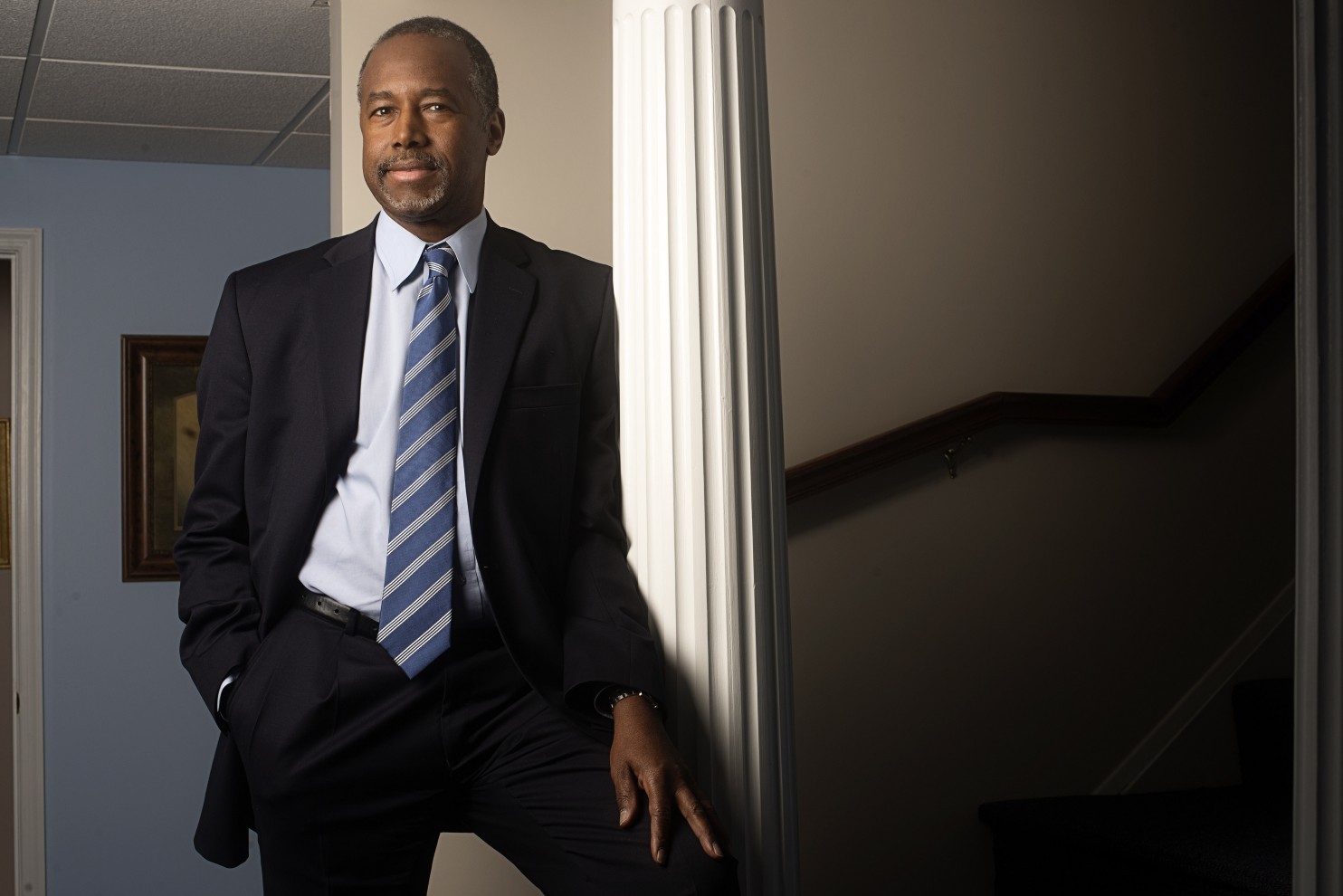
Two days before Christmas, with his presidential campaign fading fast, Ben Carson sought to take control at his manse in the countryside west of Baltimore.
A video crew was in the front living room preparing to film a campaign ad. A photo shoot was being prepped in the basement. The Associated Press had come calling, and more members of the media would show up after The Washington Post had its turn. In a matter of hours, Carson’s children and grandchildren were expected to arrive for the holiday.
Amid all that commotion stood Carson, both completely surrounded and almost entirely alone — the sole staffer on hand was a financial adviser, and the two spoke only glancingly.
Unless something in his campaign changed fast, Carson was in danger of going the way of Michele Bachmann and Herman Cain — fad candidates who wilted before a single vote had been cast. This was the day he had marked to stop the fade.
At first, Carson seemed unsure what to do. He suggested talking in a guest bedroom. But that wasn’t right. He then considered a living room next to the video crew, but that, too, seemed off. At last, he settled on the basement — a man cave befitting a world-renowned neurosurgeon. There was a pool table, a ping-pong table and a giant, rounded leather couch. On the walls were dozens of framed honorary degrees.
Carson took a seat in the curve of the couch and proceeded to explain that his staffers had let him down. Spent too much money. Kept trying to get him to change — to be more pugnacious, Trump-esque, even. A shake-up would come as soon as the next day — or maybe not for a few weeks — but it would come.
The Post would report his remarks a couple of hours later. By nightfall, Carson had walked them back and expressed “100 percent confidence” in his staff.
Nevertheless, a shake-up wasn’t all that Carson talked about over the course of the 45-minute interview. He also reflected on his improbable year, discussed the role that race has played in his campaign, opened up about his struggles with foreign policy and, without ever naming him, detailed many things he doesn’t like about Donald Trump.
There was a backbeat of bitterness to much of what Carson said — especially about perceptions in the Republican Party and in the media of Trump as strong and he as weak, and that someone of his stature could somehow be unqualified for the nation’s highest office.
Throughout, he spoke in the same soft, deliberate manner to which voters have become accustomed. In person, he also makes direct eye contact and is entirely comfortable with long, awkward pauses. At times, his silence and stare seemed like a challenge.
- Publish my comments...
- 0 Comments
